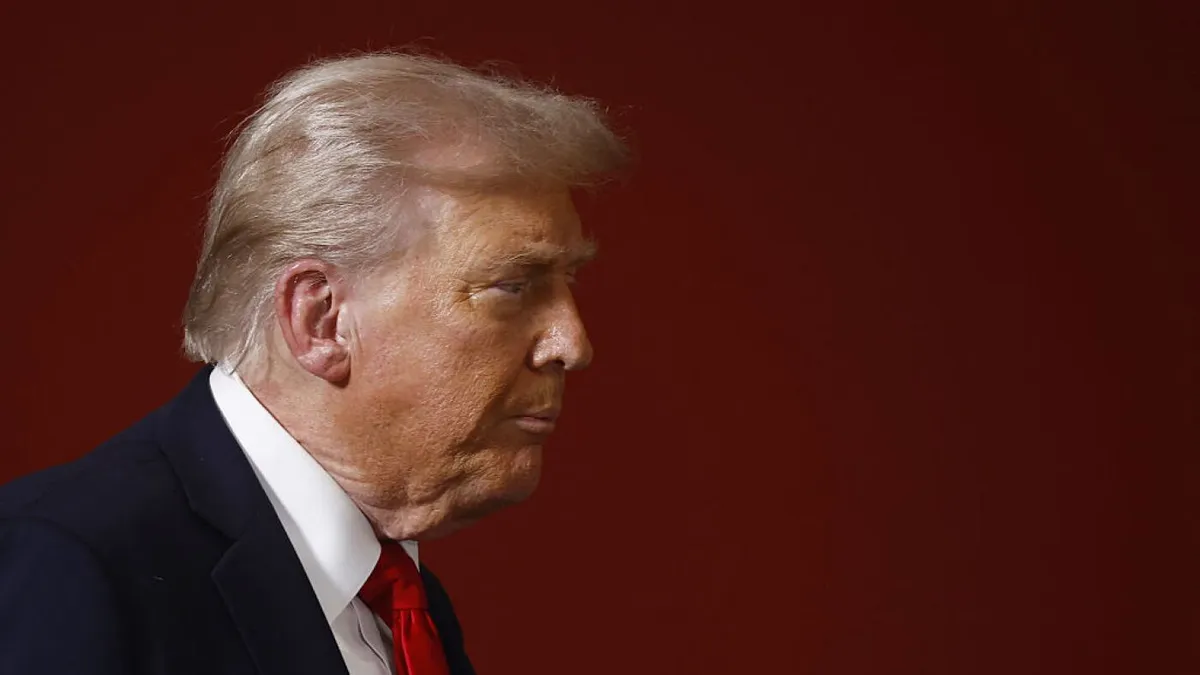
President Donald Trump is set to embark on a nearly week-long trip to Asia, which includes a critical meeting with Chinese leader Xi Jinping during the upcoming APEC summit in South Korea. The itinerary also features visits to Malaysia and Japan, where Trump is expected to engage with the leaders of these nations. This trip comes at a time of uncertainty both in the Asia-Pacific region and within the United States, where a prolonged government shutdown remains unresolved.
As President Trump prepares for his trip, the U.S. has yet to finalize crucial trade agreements with both Japan and South Korea. In recent weeks, tensions between the U.S. and China regarding trade have escalated, with Trump expressing confidence that he can secure a favorable deal with Xi. Additionally, a longstanding border dispute between Thailand and Cambodia has reignited, resulting in civilian and military casualties. In response, both countries have agreed to a ceasefire after Trump warned of potential higher tariffs if hostilities continued. A peace agreement is expected to be signed during the ASEAN summit in Kuala Lumpur.
Trump will attend the ASEAN summit for the first time since 2017, where he is expected to preside over the signing of the peace agreement between Thailand and Cambodia. In previous speeches, Trump has highlighted his administration's ability to resolve conflicts deemed "unendable." "I have ended seven unending wars. They said they were unendable. You're never going to get them solved," he stated at the recent United Nations General Assembly. A U.S. official, speaking on condition of anonymity, indicated that China is unlikely to participate in the signing ceremony, as the U.S. does not view China's role as significant, despite its involvement in mediation efforts.
While in South Korea, Trump will meet with newly elected President Lee Jae Myung, who has recently navigated political turmoil, including the impeachment of his predecessor. Lee has initiated discussions around a potential trade agreement with Trump, which includes a commitment from South Korea to invest $350 billion in the U.S. This meeting marks the first face-to-face interaction between Trump and Lee since a recent ICE raid at a Hyundai-LG battery plant in Georgia, which raised eyebrows and concerns among South Koreans.
In addition to trade discussions, the topic of North Korea is expected to arise during the meeting. Lee has expressed hope for renewed dialogue between Trump and North Korean leader Kim Jong Un. Trump has also shown openness to such discussions, stating, "I had a great relationship with him, and he probably knows I'm coming, right?"
Trump's visit to Japan will see him meet with newly elected Prime Minister Sanae Takaichi, the country's first female prime minister. The visit will also include a ceremonial meeting with the emperor and remarks at the USS George Washington naval base in Yokosuka. These engagements are part of Trump's broader strategy to strengthen ties with key allies in the region.
The trip will culminate in a highly anticipated meeting between Trump and Xi on October 30, although Beijing has yet to confirm this engagement. The ongoing tariff negotiations between the U.S. and China have kept the global economy on edge. Recent developments, including China's announcement of new limits on rare earth mineral exports, have raised tensions. Trump has threatened to cancel the meeting, expressing surprise at China's recent moves, which he described as unexpected.
Despite these challenges, Trump maintains a positive outlook on his relationship with Xi, asserting that he expects a "fantastic deal" with China. However, experts suggest that the meeting may serve as an opportunity for both nations to stall rather than resolve their trade disagreements. Ryan Hass, director of the China Center at Brookings, noted, "I'm not sure that either side is fully prepared to climb down from the positions that they've staked out," anticipating that the meeting will lead to an extension of the trade truce agreed upon earlier in the summer.